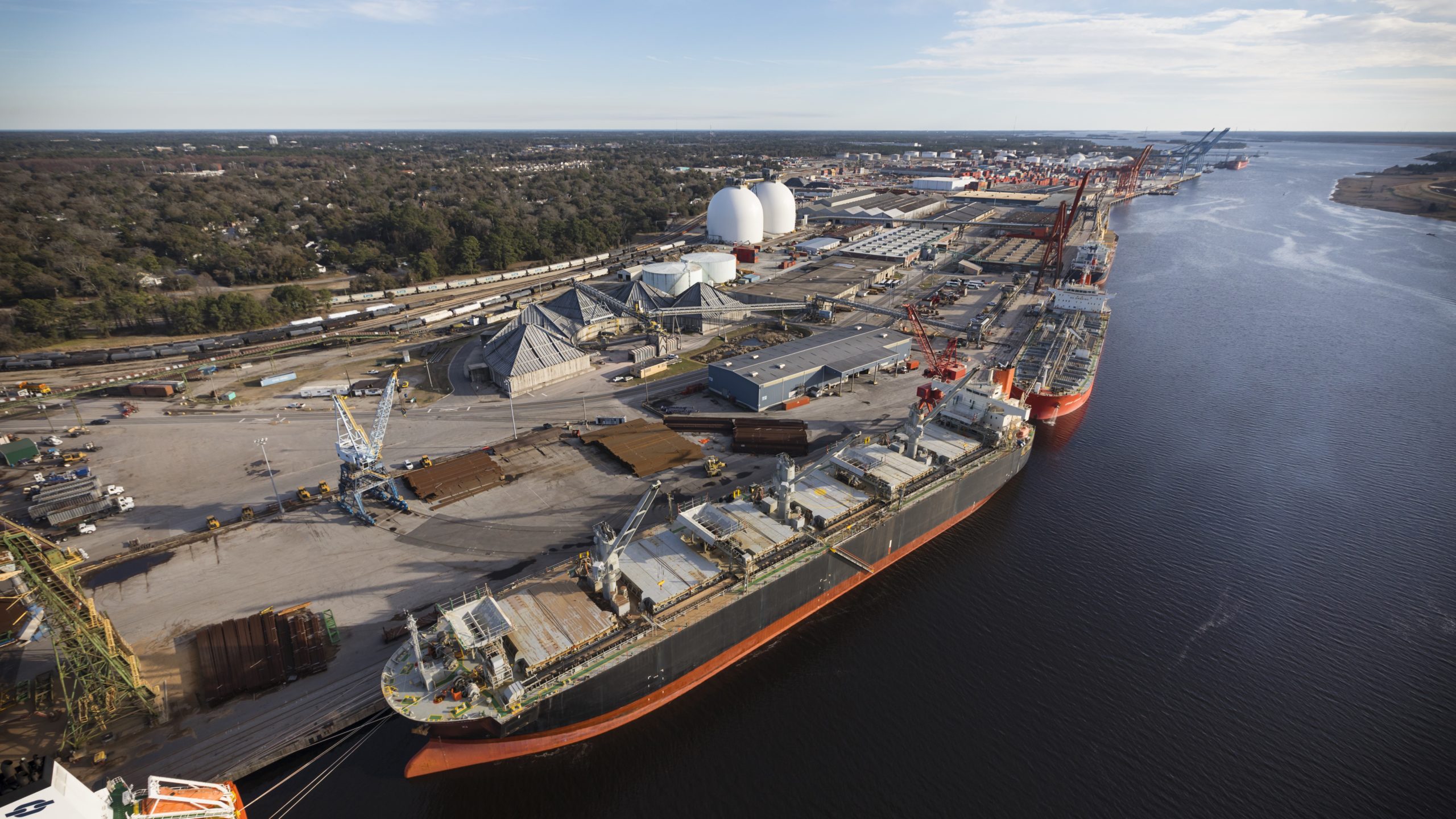NC Ports Authority Announces Development of New Agricultural Transload Facility at Port of Wilmington

The North Carolina State Ports Authority (N.C. Ports) announced recently that it has received approval from state leaders to develop a new dedicated transload facility for agricultural commodities at the Port of Wilmington. On Tuesday, Jan. 12, the North Carolina Council of State approved a land lease on a 0.77-acre site for the new facility, which will be developed through a partnership between N.C. Ports and Scoular, an agricultural supply chain firm. The project will ultimately provide the Port of Wilmington with enhanced capabilities to receive, store, and load agricultural cargo for shipment on ocean carriers. Developers are expected to break ground at the site in the next several months.
“We are excited to work with Scoular…to expand our business offerings to better serve the North Carolina agriculture community,” said NC Ports Executive Director Brian E. Clark.
North Carolina’s farmers and agribusinesses have always made major contributions to our statewide community, providing nourishing goods, creating thousands of jobs, and stimulating our economy through exports of homegrown North Carolina products. An economic impact snapshot released last year by N.C. State economist Dr. Michael Walden showed that, in 2018 – the most recent year for which comprehensive data was available – North Carolina’s agriculture sector contributed more than 16 percent ($92.7 billion) of the gross state product and provided about 772,000 jobs, or one-sixth of the state’s total workforce.
As we work to fully relaunch our state’s economy in the months and years ahead, North Carolina’s leaders will need to invest in bold, innovative projects that connect job creators in all industries with previously untapped resources and opportunities. The Port of Wilmington’s new transload facility will soon do just that for an agriculture industry that has given, and continues to give, so much to North Carolina. The NC Chamber applauds this forward-thinking decision to expand agricultural capabilities at our ports and we look forward to providing you with future updates about the project as it develops.